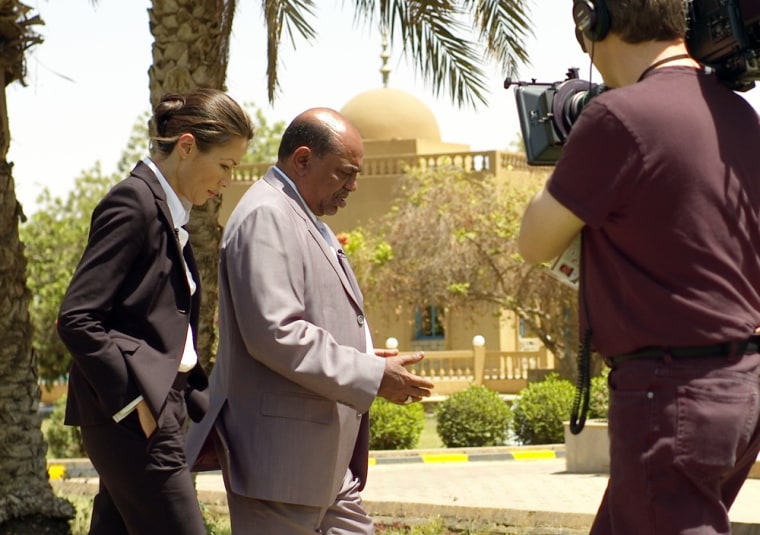At first glance it is hard to believe this is Sudan — five-star hotels, flashy car dealerships, and sidewalk cafes. Khartoum, the capital, is flush with oil money as investors from all over the world, including the Chinese, scramble to get a piece of the action.
But there is another shadowy side of Khartoum. It is a crossroads for militants, including al-Qaida operatives, headed to the wars in the Middle East. This has led to a complex relationship with the United States, which, for the first time Sudan President Omar al-Bashir acknowledged.
Ann Curry: Is there a continuing relationship in cooperating and sharing intelligence?
Omar al-Bashir: Yes, there is cooperation with those bodies, the institutions within the framework of fighting terrorism.
Curry: How do you help the United States in its need to gain intelligence in the war in terror?
al-Bashir: We collaborate — from our perspective we are against terrorism.
This intelligence sharing relationship dates back to the Clinton Administration, when Osama bin Laden lived in Khartoum. The United States wanted Sudan's help in tracking al-Qaida. Under U.S. pressure, President al-Bashir forced bin Laden to leave Sudan.
Here in Khartoum, a highly placed Sudanese government source tells NBC News the cooperation is still "frequent and at the highest levels, with regular meetings between the Sudanese intelligence chief and the CIA."
Andrew Nastios is the U.S. special envoy to Sudan.
Curry: So they are providing information on al-Qaida to us?
Nastios: Yes.
Curry: And are we working with them?
Nastios: Yes.
Curry: Is that driving American policy in Sudan?
Nastios: Absolutely not.
U.S. officials tell NBC News that Sudan currently helps track al-qaida members as they move from North Africa through Khartoum to the Middle East.
The al-Bashir government also monitors Sudanese militants who live abroad and who work with al-Qaida. Still, even with this cooperation, there are profound tensions over Darfur. The Bush Administration has accused the al-Bashir government of genocide in Sudan's Darfur region.
"I think to the extent that we have not played a leading role in bringing the international community together in Darfur, that may have been influenced by our more narrowly tailored interests on counter terrorism," says NBC News terrorism analyst Roger Cressey. "That shouldn't the case, but it might be."
But despite our intelligence relationship, U.S. officials tell NBC News that diplomatic efforts with President al-Bashir to end the Darfur crisis are not working. The United States is now planning stepped-up economic sanctions against Sudan.
